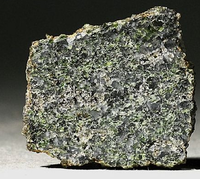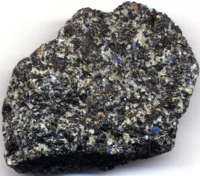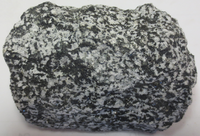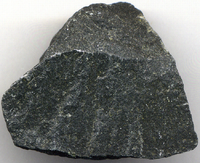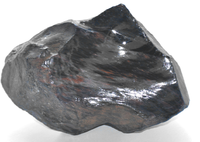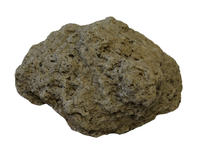Difference between revisions of "Igneous"
(→Examples) |
(→About Igneous Rocks) |
||
| Line 7: | Line 7: | ||
: When the [[magma]] is trapped underground it [[freezing|freezes]] slowly and this makes very large [[cyrstal]]s in the rock. This is called [[intrustive]] rock. | : When the [[magma]] is trapped underground it [[freezing|freezes]] slowly and this makes very large [[cyrstal]]s in the rock. This is called [[intrustive]] rock. | ||
: When the [[lava]] comes out of the [[volcano]] it cools down and [[freezing|freezes]] quickly making small [[crystal]]s. This is called [[extrusive]] rock. | : When the [[lava]] comes out of the [[volcano]] it cools down and [[freezing|freezes]] quickly making small [[crystal]]s. This is called [[extrusive]] rock. | ||
| + | : [[Igneous]] rocks have large interlocking [[Grain (Rock)|grains]]. | ||
===Examples=== | ===Examples=== | ||
Revision as of 09:44, 3 October 2018
Key Stage 3
Meaning
An igneous rock is a rock formed from magma or lava.
About Igneous Rocks
- When magma or lava freezes it is called an igneous rock.
- When the magma is trapped underground it freezes slowly and this makes very large cyrstals in the rock. This is called intrustive rock.
- When the lava comes out of the volcano it cools down and freezes quickly making small crystals. This is called extrusive rock.
- Igneous rocks have large interlocking grains.
Examples
| Granite is an igneous rock with large interlocking grains. | Gabbro is an intrusive igneous rock. | Diorite cools very slowly underground so it has large crystals. |
| Basalt forms from lava so it is an extrusive igneous rock. | Obsidian is an igneous rock that cools so quickly that crystals don't have any time to form at all. | Pumice bursts out of Volcanoes and gives of gases that make bubbles inside making it look like a sponge. |
